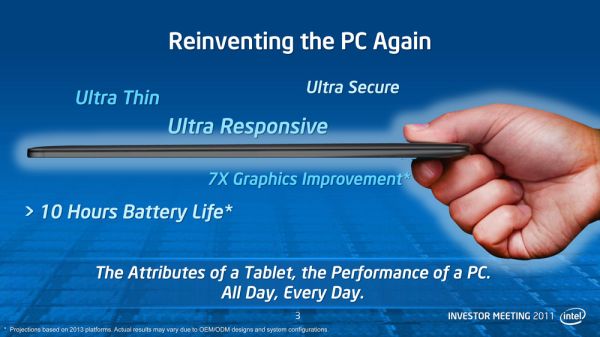Whenever an individual annuitant, who is receiving periodic payments under a Structured Settlement, desires to sell some or all of their future payments for a lump sum of money, the cash flows are sold at a discount in exchange for the lump sum payment. This discounted Structured Settlement is then available for sale to the Purchaser. This manner of securing the payment streams at a discount directly from the seller is how the Purchaser secures very favorable yields. This transaction is normally facilitated by a financial broker on behalf of the seller (or annuitant) and the purchaser.
These structured settlements normally earn more than two times the yearly rates of Municipal or Corporate Bonds, Bank Issued Certificates of Deposit (CD's), or Government Issued Treasury Securities. Investors can certainly purchase an annuity directly from an insurance company, but these Direct Annuity Investments are backed by the same insurance companies as the Structured Settlements arranged by a broker, and they are typically originated with large sales charges or commissions, and offer substantially lower yields.
The major benefits of purchasing these structured settlement annuities are:
1. Purchaser receives significantly higher yields than Purchaser can secure from comparable fixed rate investments.
2. Purchaser receives a fixed income over a defined period of time, based on the specific parameters of the purchased Structured Settlement.
3. Purchasers can aquire this asset to increase the yields in personal holdings, to maximize income at retirement, or to preserve principal for future years. They can be purchased by individuals, retirement plans, corporate entities, foundations, trusts, through investment clubs, or group investment accounts.
4. The Structured Settlement is backed or supported by annuity contracts issued by a rated insurance carrier. The insurance carrier that issued the annuity contract is state regulated and will generally have a Standard & Poor's credit rating between "A-" through "AAA".
5. Purchaser has control throughout the investment process; Purchaser receives assignment of the Structured Settlement payment rights directly from the seller through an approved court approval process, and the Purchaser receives the future cash flows directly from the rated insurance company that is obligated to make the payments. At no time during the lifecycle of the asset should the broker have possession, or control, of the Purchaser's money.
Considerations of Purchasing from Annuitant
1. The transaction process facilitates a court order of the asset directly from the Seller to the Purchaser. The broker does not own the Structured Settlement payment rights, and should not receive, hold, or disburse any of the investor's money. This is NOT a fund, and the Structured Settlement payments are made directly to the Purchaser from the insurance entity.
2. The security of the annuity is directly related to the claims paying ability of the insurance entity. The designation of an annuity as a "claims paying" obligation means that these obligations supersede obligations to bond holders, stock holders and other debtors. The insurance entities are required to hold capital to support these obligations as required by the applicable state insurance regulator. To date, a situation has not been reported where an insurance company rated A, or better, by Standard & Poors has defaulted on an annuity obligation that supported a structured settlement, and a concomitant loss has resulted to the payee. However, as the current financial markets illustrate, past history is not a guarantee of future results, and there could be future issues that arise relating to Structured Settlements that have not existed in the past.
3. Annuities, depending on the amounts owed, are partially or fully guaranteed by state insurance funds, and are designed to protect annuity holders from loss. This may provide an additional level of security to the potential Purchaser.
4. Structured Settlements are issued in U.S. dollars. Foreign Purchasers should consider the impact of exchange rates and U.S. withholding taxes on any potential investment.
5. A Structured Settlement may be less liquid than other investment options. The court order assigns the payment rights directly to the Purchaser or designee, and any future assignments may require an additional court order. There is no established secondary market for the resale of Structured Settlements and hence, Purchasers should be prepared to hold the Structured Settlements for the entire term.
6. In evaluating Structured Settlement payment rights, Purchasers should review the structure of, and support for, the payment rights. For example, some Structured Settlement payment rights are guaranteed by the related insurance company.
7. The Structured Settlement payment rights purchased may be all of the payments due to a Plaintiff or only a portion of the payment rights. Because the court will only approve a transaction that is in the best interests of the Plaintiff, in many instances, only a portion of the payments can be purchased since the purchase price for these limited payments will meet all of the Plaintiff's current needs. Because most state guaranty funds have dollar limits on the amount that they can be obligated to pay in respect to annuities and life insurance policies issued by insolvent insurance companies, Purchasers should be cognizant of the size of the underlying annuity that supports the Structured Settlement relative to those limits.
8. There are tax considerations applicable to purchasing, collecting, holding and selling Structured Settlements. Please note that Section 104 of the Internal Revenue Code, which exempts Structured Settlement payments being made to an injured person pursuant to a settlement, is not applicable to
Secondary market purchasers. Hence, the receipt of Structured Settlement payments are generally taxable to a secondary market purchaser. Purchasers should consult their own tax advisor as to the tax considerations that would be applicable prior to purchasing any Structured Settlements.
Risk Mitigation of Purchasing from Annuitant
The purchasers return on the investment is based entirely on timely receipt of payments outlined in the court order which assigns the rights to those payments to the Purchaser. The risk associated with receipt of those payments is mitigated by the historical performance of the asset, as well as the various guarantees that may apply.
1. In most cases, the seller has already been receiving payments related to the original Structured Settlement. This indicates that the insurance company has accepted that obligation, and has established a pattern of making timely payments.
2. Annuities are typically secured through a process of matching assets, meaning that the insurance entities typically invest the original principal received from the defendant or assignment company into investments which offset the obligation.
3. The annuity companies have historically performed as agreed.
4. The Court Order process establishes the rights of the purchaser related to receipt of the payments, as well as the completion of a process that includes the acceptance and acknowledgement of the specific insurance entity.
5. Annuities are "Claims Paying" obligations, and they supersede other creditors in the unlikely event of default or liquidation.
6. The underlying rating of the insurance entity is available. Structured Settlements where the underlying annuity is from a company with an S&P rating of A- or better are normally very safe investments.
7. The insurance entities typically have large parent companies, with a significant asset base.
8. Finally, each state provides a limited guarantee fund to support the obligations of the entities within that state.
The ownership of some Structured Settlements represents a direct investment in an annuity contract. In some states, this provides the sophisticated Purchaser an opportunity to shield assets from creditors since annuities and/or the cash proceeds thereof can be exempt in whole or in part from creditor claims. The laws differ by state, and Purchasers should thoroughly research how this applies to their situation and consult with their own legal counsel.
Fixed Rate Annuity Backed Structured Settlements are not typically offered directly to the general public, except in connection with the settlement of lawsuits and certain other limited circumstances. Therefore, they provide a limited opportunity to sophisticated and cautious purchasers to secure safe fixed returns at superior rates of interest.











0 comments:
Post a Comment